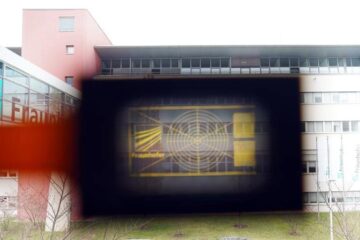Laser Technology Improves Solar Collectors

The sun is the energy source not only done for photovoltaic cells but also for thermal solar collectors. Whereas photovoltaic cells transform the sun's energy directly into electricity, solar collectors use a liquid which is heated by solar radiation. The thermal energy won during this process can be used for heating water in homes or in larger units for driving power generators.
In the heart of larger units are glass tubes filled with a liquid, which is heated by solar radiation. These glass tubes must be joined together, and according to the Laser Zentrum Hannover e.V. (LZH), laser technology is best suitable for this process. A new project between the LZH and several industrial partners aims at proving that laser joining of glass tubes has many advantages over the conventional flame method, and that it is more cost-efficient for the glass industry.
The disadvantages of the conventional flame technique can partly be compensated by trained staff, but it can also lead to product failure. During the joining process, impurities may occur in the joining zone, which cause considerable variations in the glass quality. Also, the heat input is difficult to regulate when using the flame technique. This is not the case with laser technology.
The advantages of laser joining of glass tubes are mainly temperature control, temperature distribution and in the automation. Additionally, in contrast to the flame joining, the laser joining technique prevents condensation and deposition in the glass tube, thus offering better quality. In combination with chemical resistant and robust borosilicate glass, breakage is significantly reduced, which in turn leads to a considerably lower reject rate.
The new system is a solid basis and starting point for all project partners and all the connected industrial branches in finding new application areas. This is the foundation for profitable industrial use.
The project “Lafuelsol” is funded by the German Federal Ministry of Education and Research (BMBF). The project organization is carried out by the Karlsruhe Institute of Technology, division Production and Manufacturing Technologies.
Contact:
Laser Zentrum Hannover e.V.
Michael Botts
Hollerithallee 8
D-30419 Hannover
Germany Tel.: +49 511 2788-151
Fax: +49 511 2788-100
E-Mail: m.botts@lzh.de
The Laser Zentrum Hannover e.V. (LZH) carries out research and development in the field of laser technology and is supported by the Ministry of Economic Affairs, Labour and Transport of the State of Lower Saxony (Niedersächsisches Ministerium für Wirtschaft, Arbeit und Verkehr).
Media Contact
All latest news from the category: Power and Electrical Engineering
This topic covers issues related to energy generation, conversion, transportation and consumption and how the industry is addressing the challenge of energy efficiency in general.
innovations-report provides in-depth and informative reports and articles on subjects ranging from wind energy, fuel cell technology, solar energy, geothermal energy, petroleum, gas, nuclear engineering, alternative energy and energy efficiency to fusion, hydrogen and superconductor technologies.
Newest articles

Wildfire danger to increase due to climate change
WSL Institute for Snow and Avalanche Research (SLF) researchers expect an elevated wildfire danger in the Alpine Foreland from 2040 onwards due to changing meteorological conditions. The danger currently remains…

Advanced Brain Science Without Coding Expertise
Researchers at Helmholtz Munich and the LMU University Hospital Munich introduce DELiVR, offering a new AI-based approach to the complex task of brain cell mapping. The deep learning tool democratizes…

Transparent emissive microdisplays
… for ultra-light and compact augmented reality systems. As part of the HOT project (High-performance transparent and flexible microelectronics for photonic and optical applications), scientists from the Fraunhofer Institute for…





















